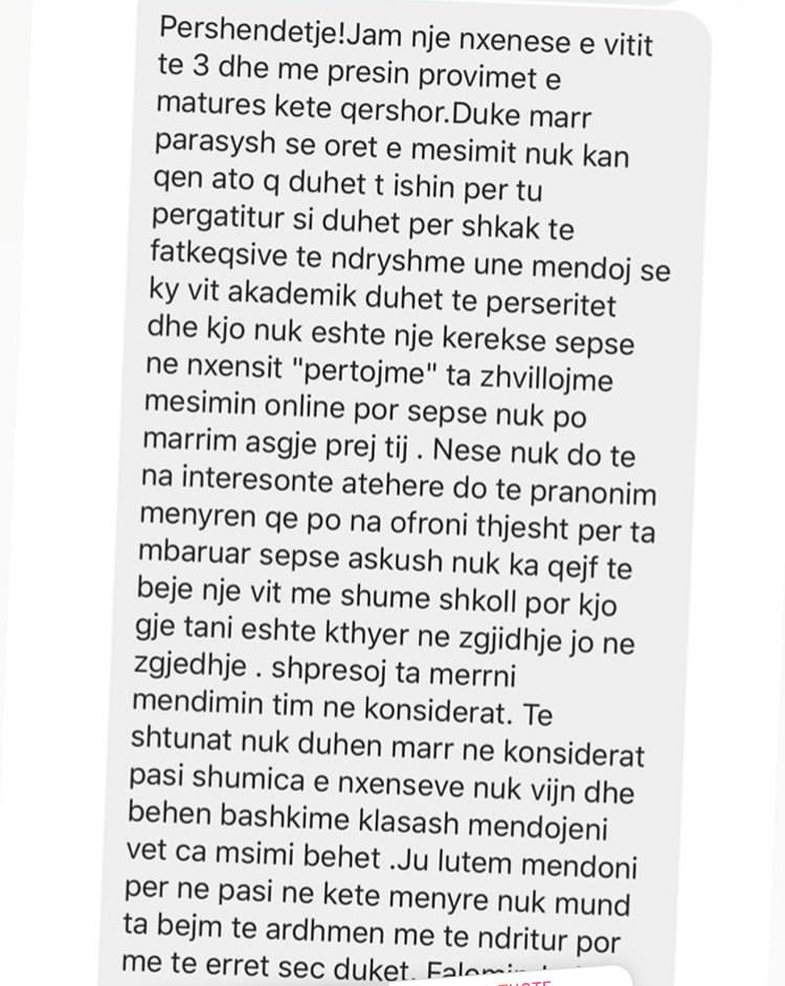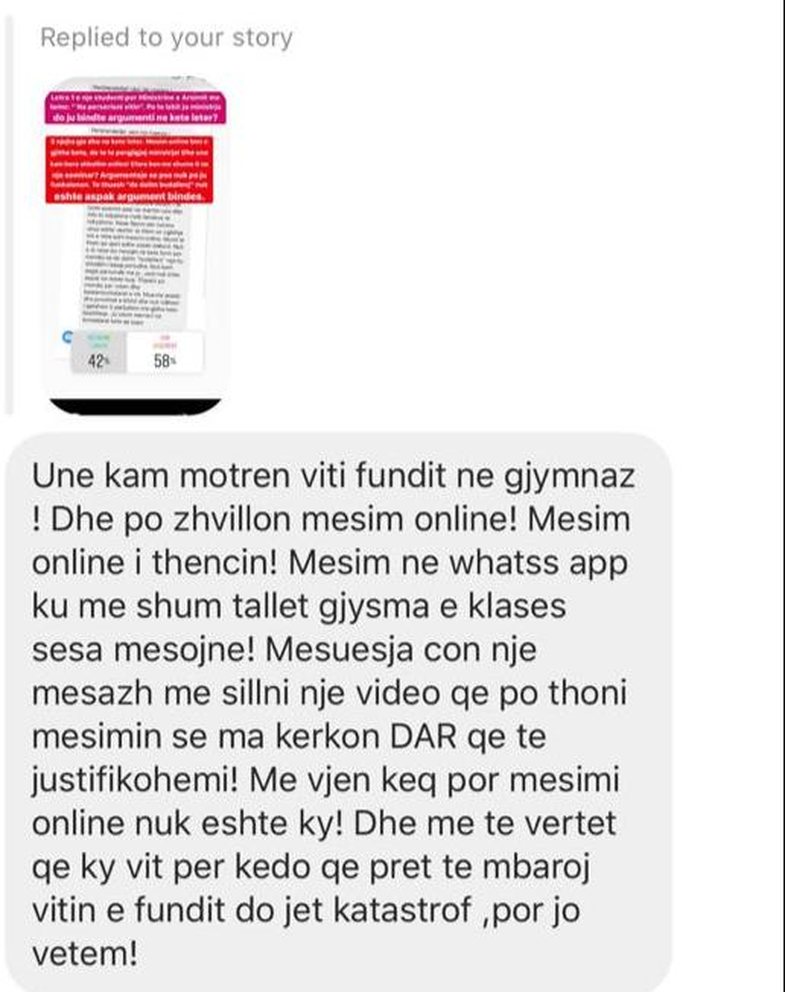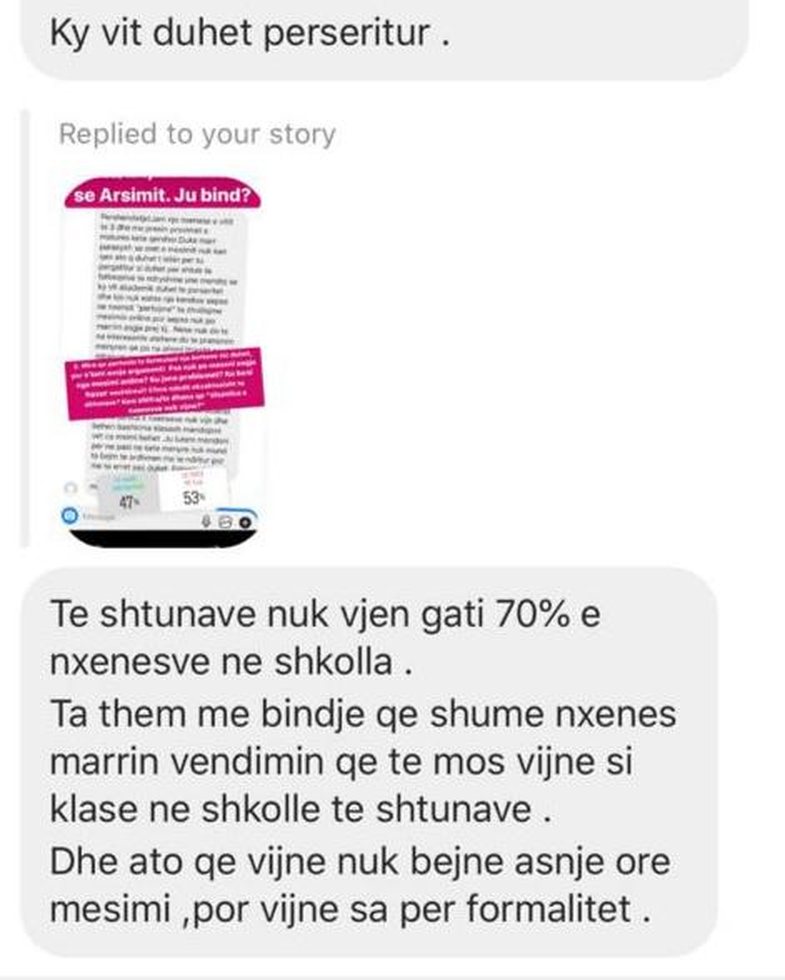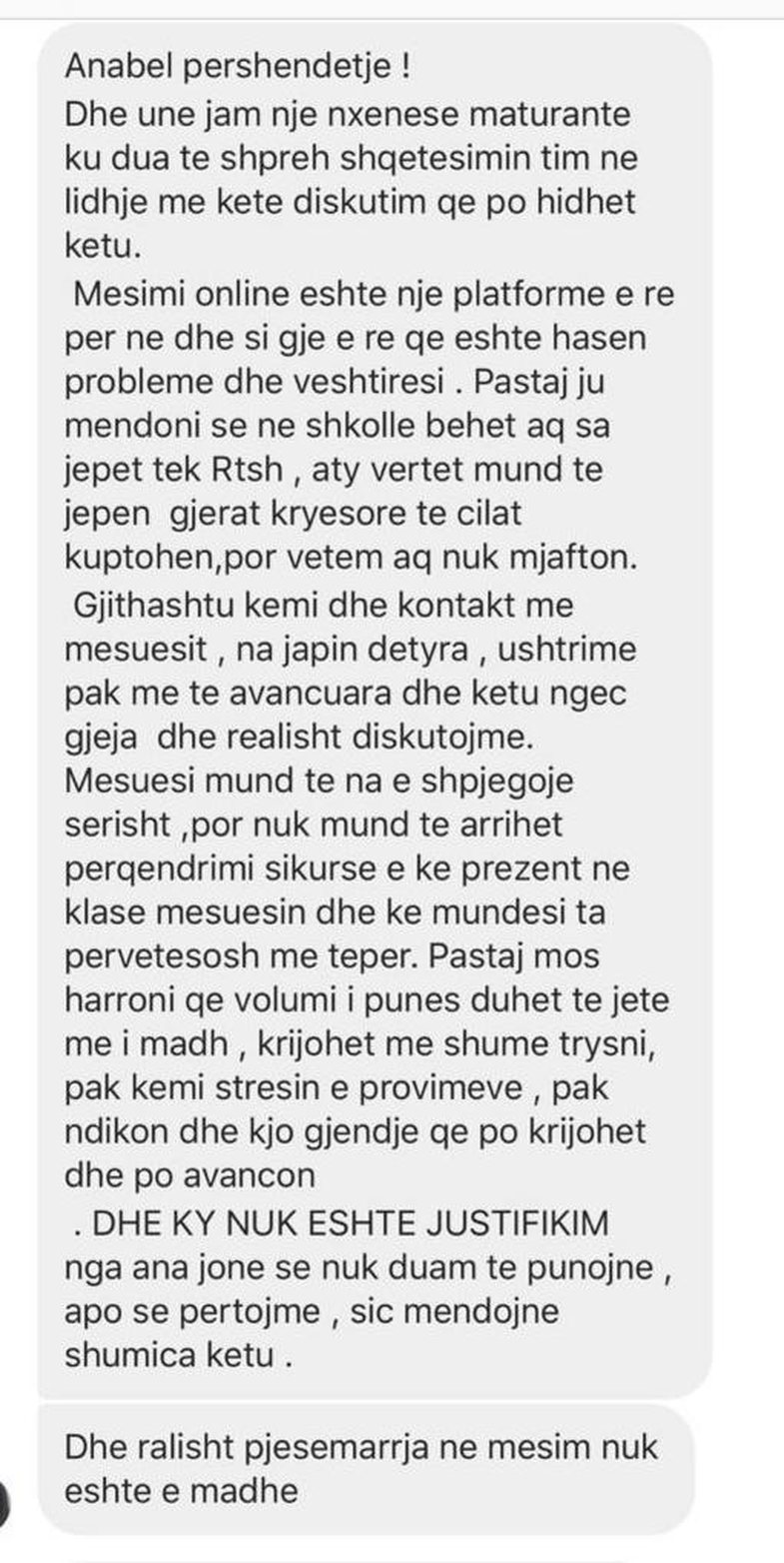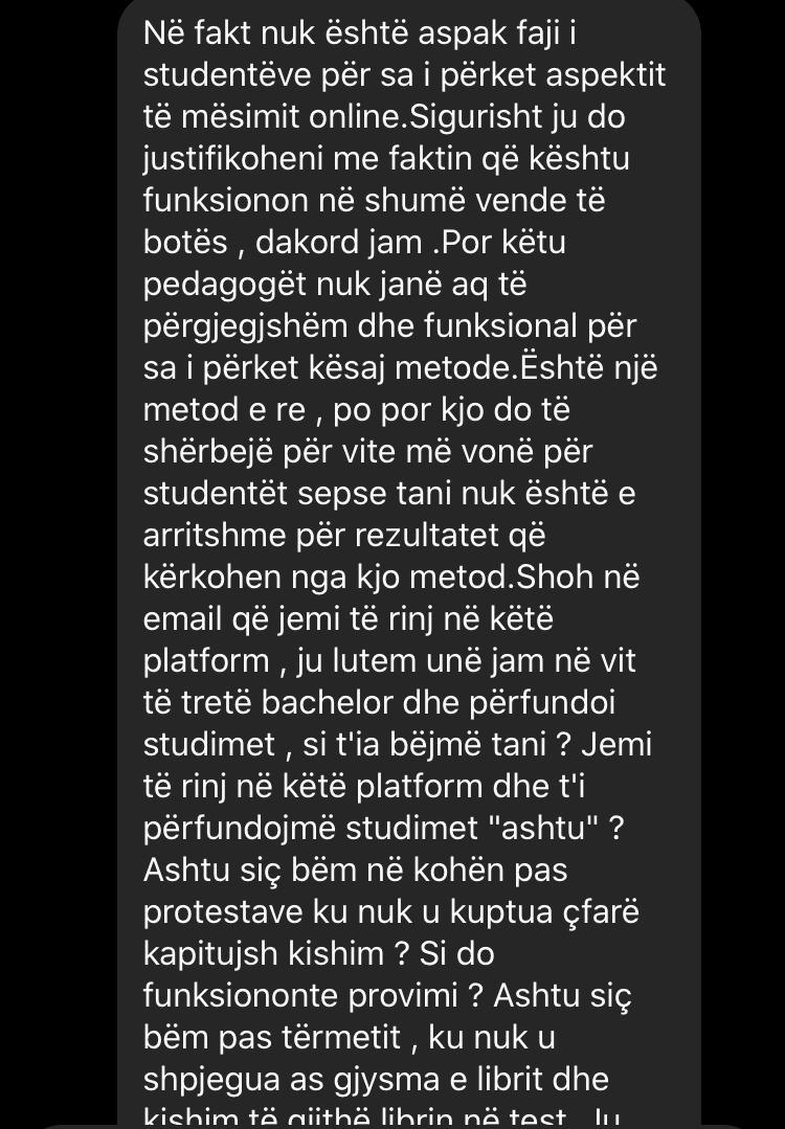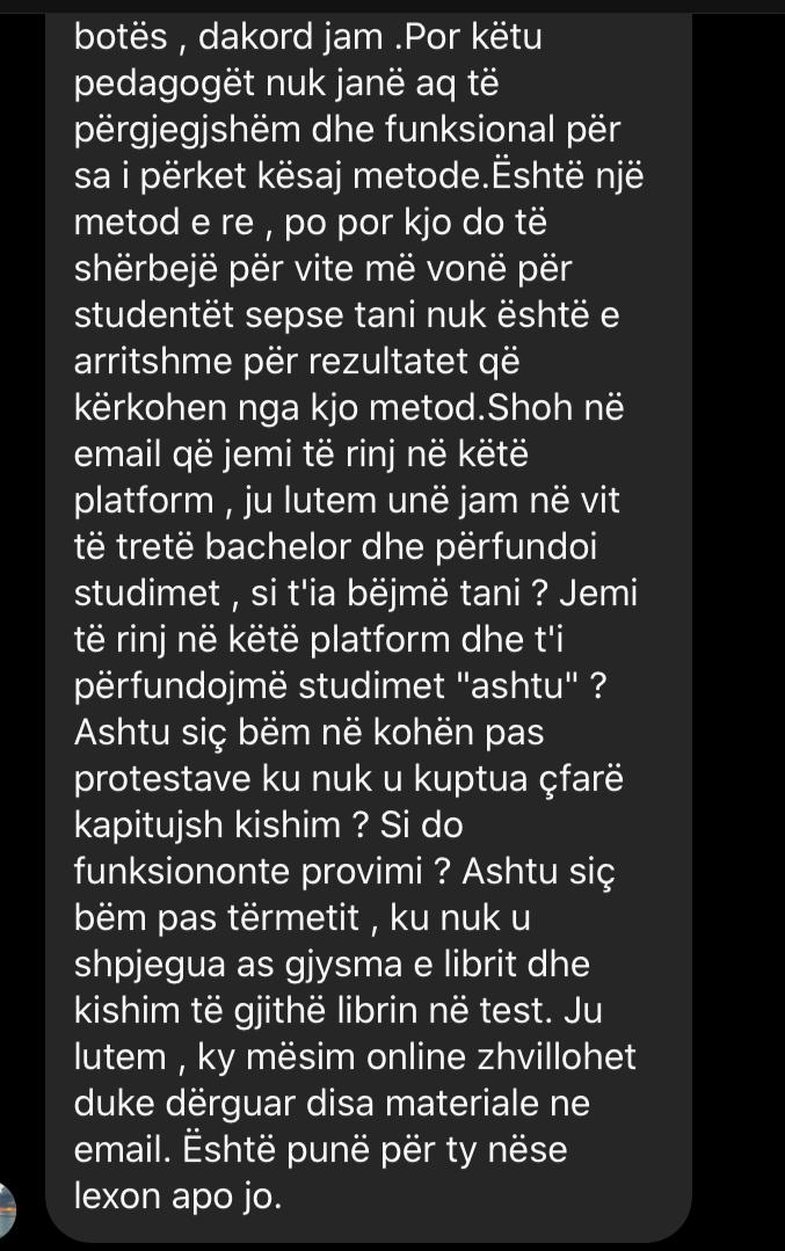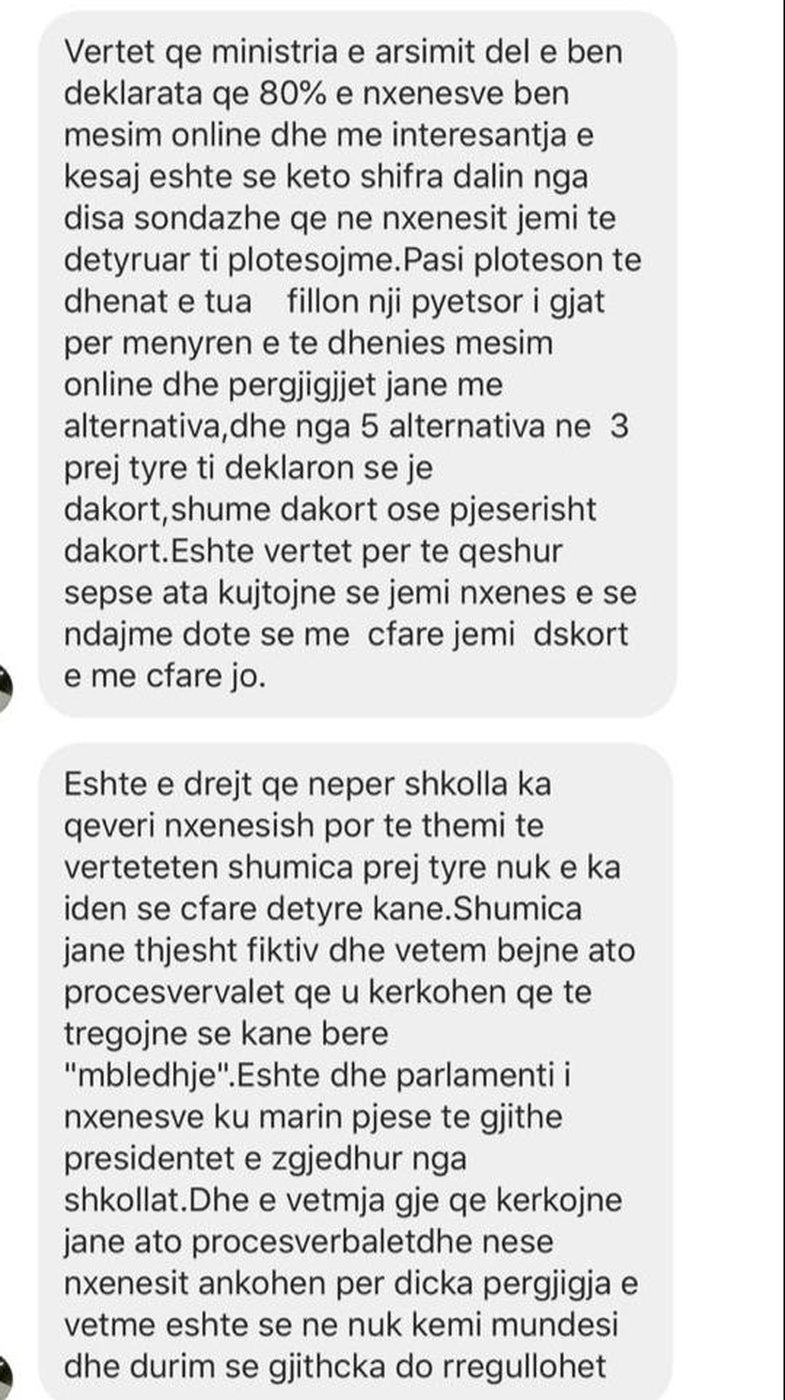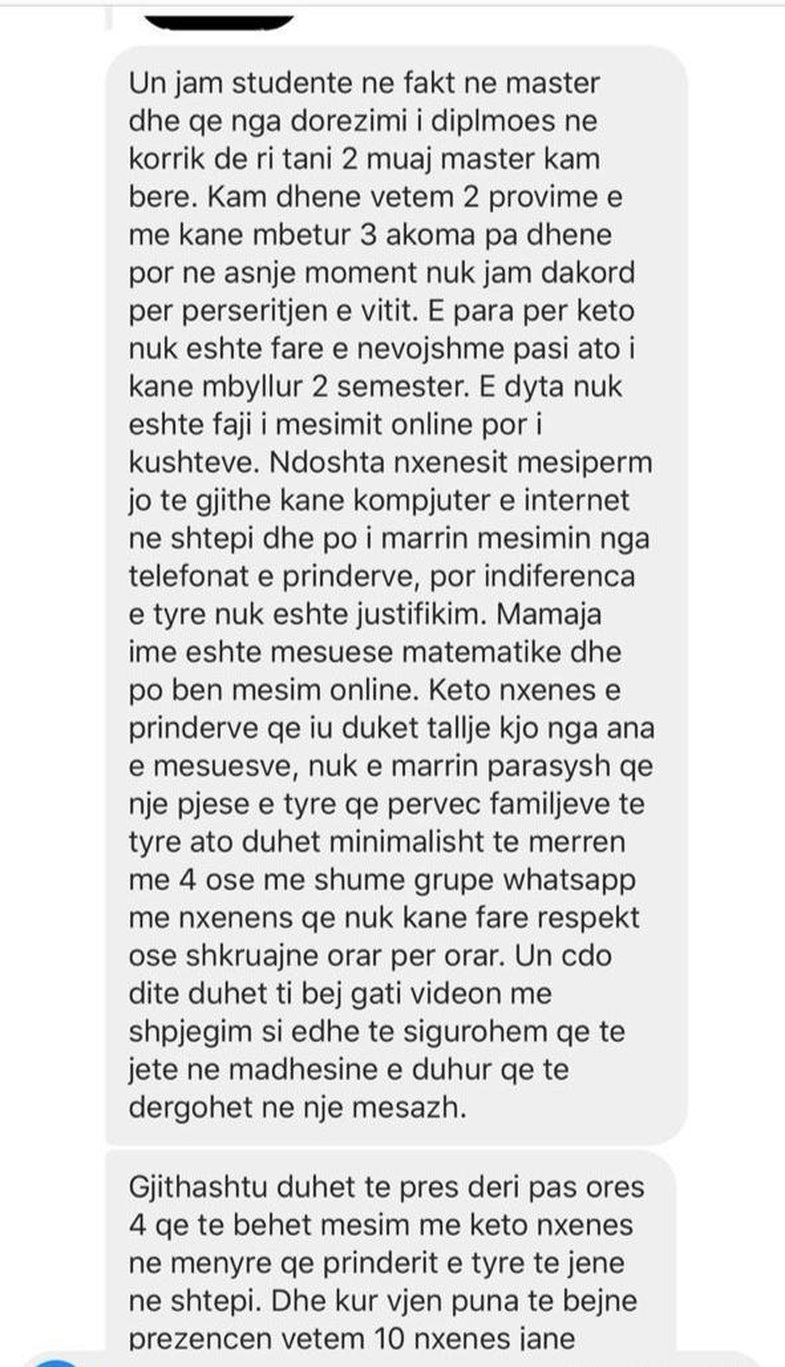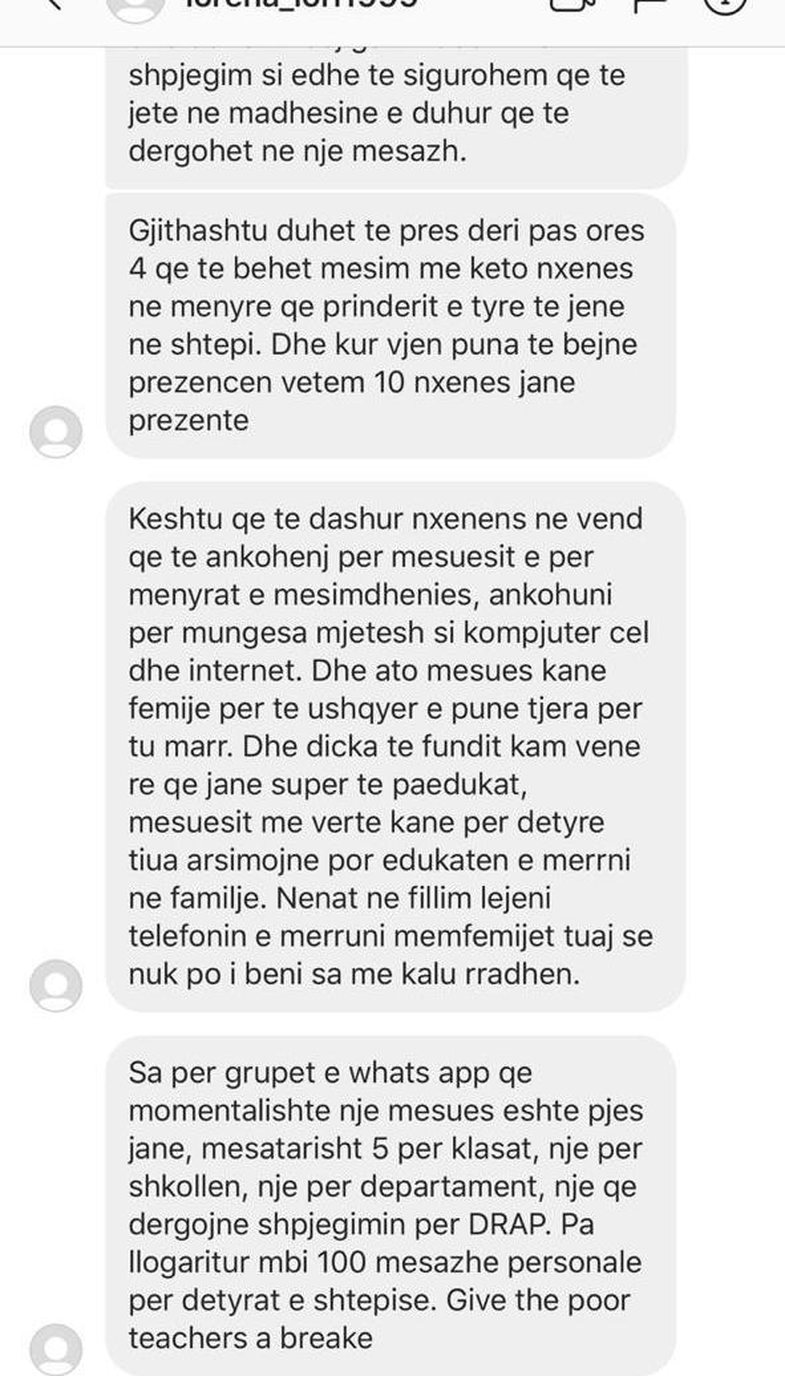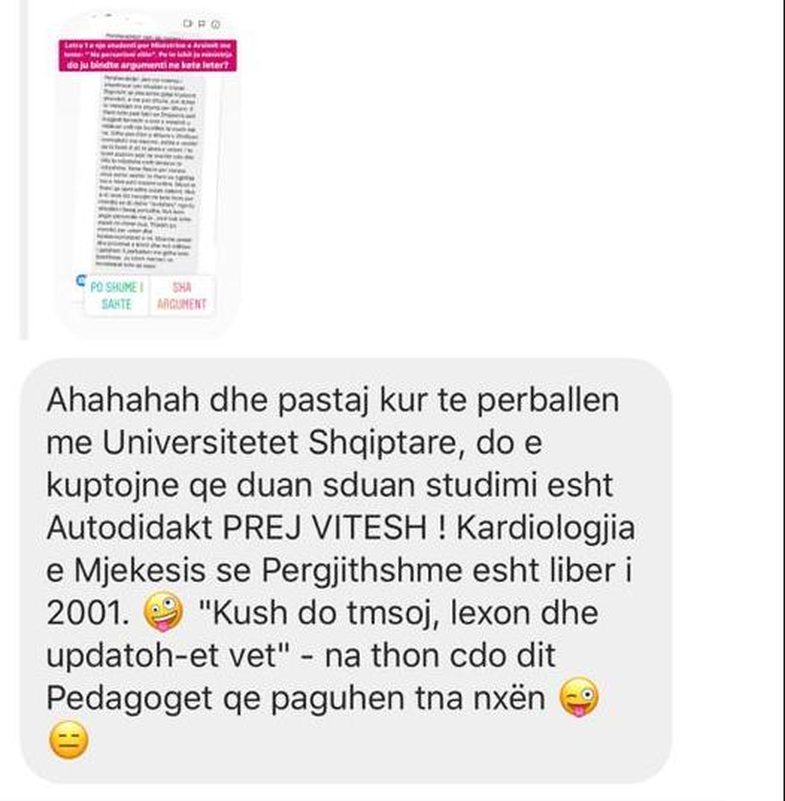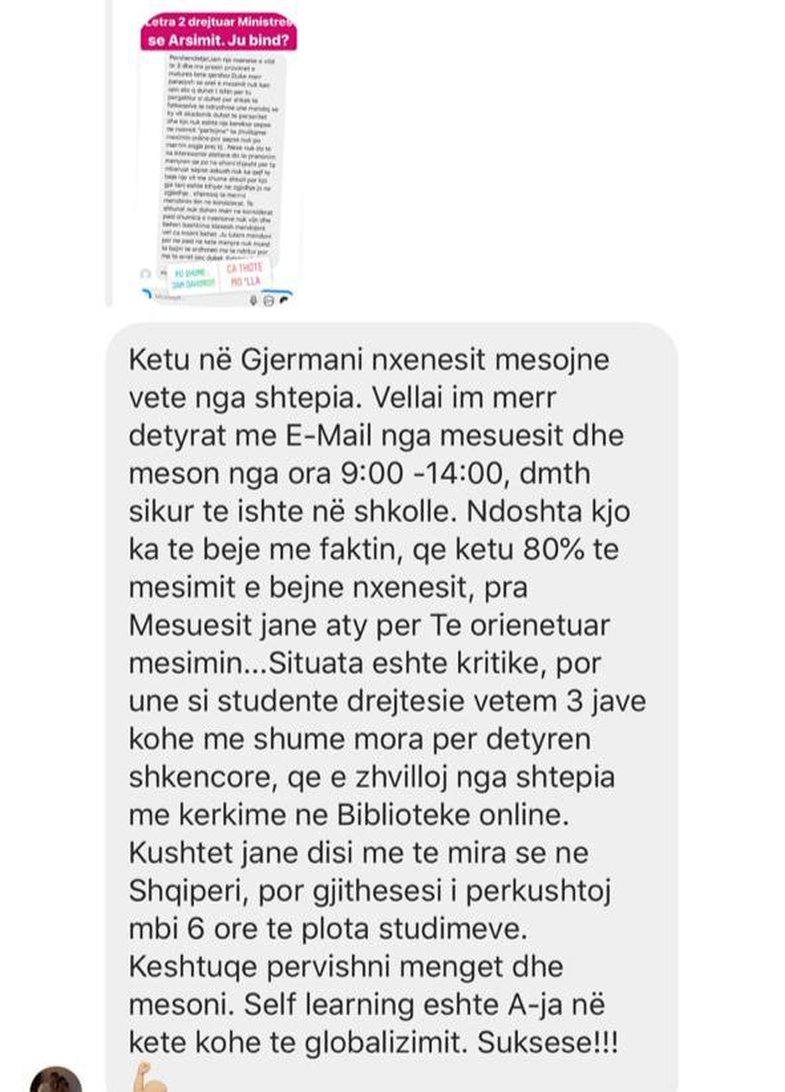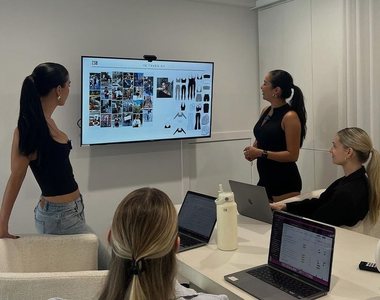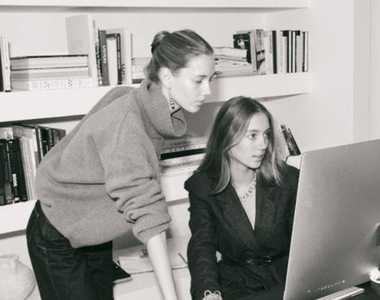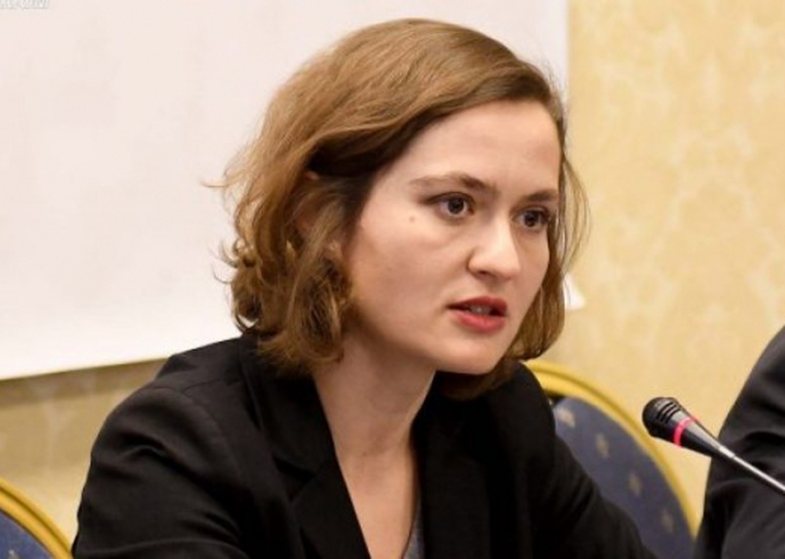
The closure of schools as a preventive measure for the spread of coronavirus in Albania has again agitated the country's education system, which had just begun to normalize slightly after the November 26 earthquake. As the best possible solution, the Ministry of Education introduced an online learning program, ranging from WhatsApp communications between students and teachers to teaching on television and YouTube. Online learning was the word that circulated among students who were taken aback, especially among high school graduates, who questioned the development of Matura exams. As long as there is no order for postponing and / or adapting them to the conditions of the lesson, graduates have raised concerns and go as far as to ask for a repeat of the year because they do not feel ready. Having said all this to understand what is really going on with online learning.
In the inbox of @Anabel_Media on Intagram, some graduates wrote: ?Considering that classes are not as they should be, we think this academic year should be repeated, not because students prefer to teach online, but because they do not we are getting nothing. No one is eager to repeat a year from scratch, but this is a solution, not an election. "
Students point out that their learning is having difficulty, as subjects cannot be taught online. Some of their arguments are listed below:
1. ?I am a very good student and believe me these days I am exhausted more than ever. Online learning is somewhat effective, but no solution in this situation. Do you think math, physics, chemistry is taught online? Or the literature our teacher develops on WhatsApp? What about the day I had no internet? What about those who do not have internet? "
2. ?90% of teachers don't know how to use any platform, they don't know Google Classroom, nothing. Regarding that platform of ART, different lessons are complete, because as Albanian education introduces 100 methods in different schools, it can never be in one lesson. ?
3. ?Those given on television are very few, teachers are demanding more. Learning in WhatsApp groups is such that they give assignments and look for solutions, while the student does not hear the explanation. It may work for some subjects, but not for all. "
In this problem, it is not only the students who complain, but also the teachers. Some of them, who wrote in the inbox of Anabel Magazine on Facebook, said students have deficiencies in equipment, and that brings loads.
The question naturally arises as to why there were so many difficulties. Aren't we in 2020 and it is assumed that online learning would be something easily manageable by students and teachers, certainly through the policies of the Ministry of Education?
Theoretically yes, practically no.
If Google Classroom has existed in the world since 2014 and Albanian students downloaded it for the first time in 2020, it means they are not familiar with such practices and online learning. Most lectures are left in photocopies or students are forced to take notes. Their virtual distribution is not a method of the Albanian education system. Technology, with all the strategies to make it part of education, is not a strong element of teaching. When it comes to technology, it is not about introducing video projectors, but about incorporating "virtual teaching" as an integral teaching practice in general. All this "rage" seems to have caught not only the students but also the teachers unprepared.
Of course the situation is not as "dark" as it may sound. E-Learning is a practice that has proven to be effective in many educational systems. "I am a generation that survived '97 and no one came out wrong," someone writes about learning from home. ?Online learning is done all over the world, it requires good pedagogical materials design and pupils / students need to adapt, as all over the world. I did a doctoral thesis in Estonia on this and the state has to have digital equipment, ?adds another. ?Here in Germany, students learn from home. My brother gets email assignments from 09: 00-14: 00, ie as if he was at school. Here, 80% of the lessons are done by the students themselves. ?
The initiative of the Ministry of Education is undoubtedly the best possible one in such a situation, which found them all unprepared, though e-learning should have been almost familiar. However, what stands out is the fact that ?student-centered teaching? is not very widespread in our education system, despite being a methodology based on which the curriculum is based. Student-centered teaching implies that it is the student who directs the lesson, while the teacher simply directs. So, the student in the center and the teacher who "watches" in the suburbs. Traditionally, however, it is the teacher who directs the learning at the center, which creates a kind of student-teacher ?dependency?. In other words, if the teacher does not explain, the student does not understand.
However, as we have said, the situation is not so "dark", or at least not as much as the need to postpone graduation exams, much less the cancellation of the school year. But on the other hand we should add that it is probably important to adapt the exams to the current situation. It is a clumsy moment that we must believe will find a solution later. After coronavirus, after getting acquainted with Google Classroom and other effective online learning tools, education in Albania will no longer be the same. It doesn't have to be.
comments:
